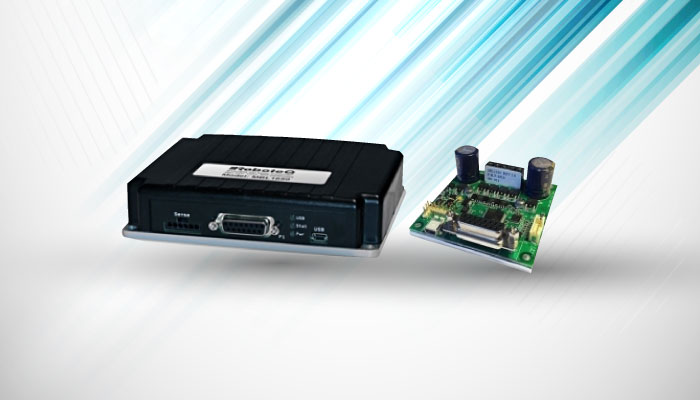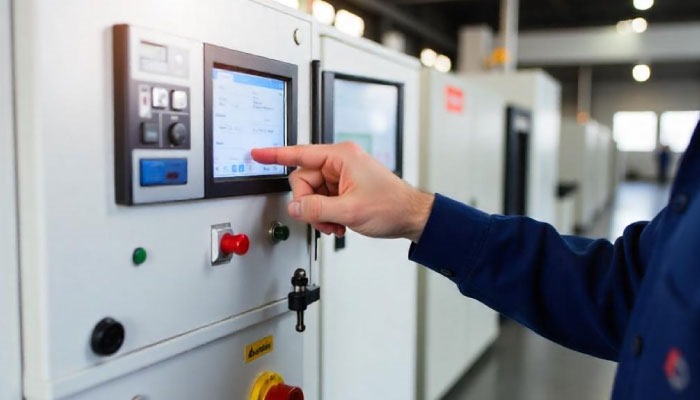How the Oil and Gas Industry Benefits from SCADA Systems

The oil and gas industry are known for operating in some tough environments like offshore rigs, isolated pipelines, and risky refineries. Managing such demanding and high-risk operations requires dependable, real-time monitoring and control. This is where SCADA (Supervisory Control and Data Acquisition) systems come in and play a transformative role.
SCADA has become an essential part of automation in the oil and gas sector, providing centralized control, enhancing safety, boosting operational efficiency, and cutting costs. Let us learn how SCADA systems are helping this high-stakes industry.
- Remote Monitoring of Assets
Oil and gas fields often span vast geographic areas, including remote or offshore locations. With SCADA, operators can monitor and control field equipment such as pumps, compressors, and valves from a central control room. This eliminates the need for constant physical presence at each site and significantly reduces travel, labor costs, and response times.
Through wireless communication or satellite links, SCADA systems collect and transmit data from RTUs (Remote Terminal Units) and PLCs (Programmable Logic Controllers), allowing real-time decision-making from virtually anywhere.
- Real-Time Data for Better Decision-Making
SCADA systems provide operators with a continuous stream of real-time data—pressure, flow rates, temperature, tank levels, and more. This data is not just stored; it is visualized through intuitive dashboards, alarms, and trend charts. Engineers and supervisors can instantly detect anomalies or performance issues, respond to potential failures, and optimize operations. In an industry where downtime is costly and safety is paramount, having access to timely, actionable data can make a significant difference.
- Leak Detection and Environmental Compliance
One of the most vital roles SCADA plays in the oil and gas industry is in leak detection. Even a small leak in a pipeline can lead to massive environmental damage, regulatory fines, and reputational harm. SCADA systems continuously analyze pipeline pressure and flow rates, triggering alarms when discrepancies are detected. This enables early detection and swift containment of potential spills.
By helping companies adhere to strict environmental and safety regulations, SCADA supports corporate sustainability goals and avoids non-compliance penalties.
- Predictive Maintenance and Asset Health
Unplanned downtime can cost oil and gas companies millions. SCADA systems, when integrated with analytics or machine learning tools, can shift maintenance strategies from reactive to predictive. By monitoring vibration, motor temperatures, and operational cycles, SCADA systems can predict equipment failures before they happen.
This predictive approach not only extends asset lifespan but also improves plant uptime, reduces maintenance costs, and enhances overall reliability.
- Enhanced Safety and Alarm Management
Working in oil and gas can be risky. That is where SCADA systems come in—they are like a as a crucial line of defense that helps manage emergencies. They enable quick shut-downs, send alerts for gas leaks, manage pressure release, and detect fires. When something goes wrong, critical alarms are sent out straight to the operators, allowing for fast action to avoid accidents.
On top of that, modern SCADA systems come with alarm rationalization features. This means they reduce those annoying nuisance alerts and only emphasize the most important issues, so teams can concentrate on what truly matters in a crisis.
- Integration Across the Value Chain
From upstream exploration to midstream transportation and downstream refining, SCADA systems can integrate across every stage of the oil and gas value chain. This unified control architecture facilitates seamless coordination between various units—whether it’s production wells, storage facilities, or distribution terminals. Such end-to-end visibility leads to better resource planning, production forecasting, and inventory management.
- Scalability and Customization
Every oil and gas operation are unique in its geography, process, and scale. Modern SCADA platforms are highly scalable and customizable, making them ideal for small operators and large enterprises alike. Whether you need a basic monitoring system for a remote wellhead or an enterprise-grade SCADA for a national pipeline network, the architecture can be tailored to your needs.
Summing Up
SCADA systems are more than just monitoring tools—they are strategic enablers of efficiency, safety, and profitability in the oil and gas industry. As the sector becomes more digitized and competitive, the role of SCADA will only grow in importance.
Looking to modernize your oil and gas operations with SCADA?
Partner with Theta Controls to implement intelligent, scalable SCADA solutions tailored to your operational needs. From real-time monitoring to advanced automation, we help you unlock efficiency, enhance safety, and stay ahead in a competitive landscape.
Get in touch with us today to start your digital transformation.

